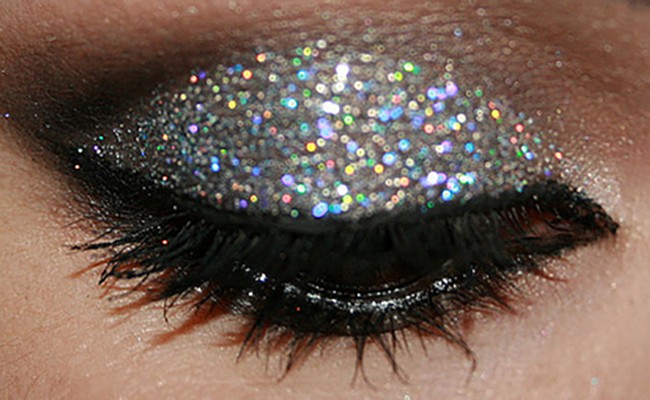Recently I stumbled on a tweet that claimed to ‘love’ my podcasting appearances because ‘her lush plot summaries save me ever needing to read the book or watch the film’. The accusation of prolixity stung: I’ve always felt ashamed of writing, speaking and being … too much.
As I considered the excessive lavishness of my descriptive powers, my blue-grey eyes grew luminous with tears, smearing my eyeliner into wings of woe. In my kitchen, slouching by the kettle as it grumbled towards a cup of tea, I used my floral cotton skirt to wipe salt-splashes from the lenses of my tortoiseshell cat’s-eye glasses. My eyeballs felt dry and raw. In my throat was a cold lump, which several Quick-Ezes failed to dislodge. What was the point of writing? Of podcasting? Anything? It was only 8 pm and I wanted to go to bed. The tea mug went unfilled.
I feel drawn towards detail because it’s comforting. Lush description communicates my enthusiasm for my subject. It invites the reader – or the listener – to join me inside a warmly immersive world. An accretion of observations can lend momentum and emotional heft to prose, while minimalist storytelling remains dispassionate.
Spoken culture has always favoured epithets: adjectives and adjectival phrases that frame and colour a person or thing. Classical and medieval epic poets used epithets not just for characterisation and scene setting, but also as devices for both bards and listeners to orient themselves within the tale. In Homer’s Odyssey, Calypso is always ‘the nymph with lovely braids’, while Athena and Hermes constantly ‘fasten the supple sandals’ under their feet before racing off to deliver messages and advice.
As a technique for converting the visual into the verbal, epithets also enable politicians and philosophers to appeal to audiences in subtly persuasive ways – such as describing warfare as ‘bloodshed’ or ‘sacrifice’. Fairytales, ghost stories and even today’s bedtime children’s books all reflect their oral heritage: audiences yearn to be swept up in repetitive, descriptive cadences.
And so do romance readers. Romance fiction has developed a richly codified metaphorical vocabulary for communicating emotions and interactions. When in love, we caress our beloved’s face and body with an avid gaze, searching for signs of reciprocal interest. Similarly, romance fiction glories in the details of people’s appearance and dress, imputing their inner states using epithetic language. Eyes, not usually flammable organs, nonetheless ‘spark’, ‘flare’ and ‘smoulder’, while the colour, style and dishevelment of someone’s hair suggests their moral character.
In high school, I stumbled across a dapper-looking paperback in my local library: The Romance Writers’ Phrase Book. It was simply a list of descriptive phrases, organised into thematic categories. As a joke, I used the book to write a short story merely by stringing the phrases together, with risible results. (‘Hers was a slim, wild beauty, with firm high-perched breasts and long, lithe thighs.’)
But as cultural critic Maria Bustillos puts it in an essay at the Awl, these books apply a ‘soothing, gentle balm … to the insecure and frightened part of our nature’. Bustillos praises romance’s ritual qualities – ‘it really is quite like a religious ceremony; comforting, calming’ – and argues that its pleasures lie almost wholly in familiarity and anticipation.
Lush writing can comfort writers, too. In the late 1980s and early 90s, Amy Boesky juggled postgraduate study and teaching with ghostwriting dozens of books in Francine Pascal’s wildly successful young-adult novel series Sweet Valley High. As Boesky recounts in the Kenyon Review, she found academic labour frequently isolating and anonymous. ‘Ghostwriting these books became an escape hatch for me, a place I could shoot down to from my customary cloud cover. It was the sky jump and the parachute and the soft-focus destination, all in one. Why would I ever give that up?’
The first Sweet Valley High book, Double Love (1983), introduced the Wakefield twins with an incantation that would go on to open a series of 600-odd volumes, becoming as familiar to many teenage girls as Homer’s ‘wine-dark sea’ and ‘rosy-fingered dawn’ were to the Greeks:
With their shoulder-length blond hair, blue-green eyes, and perfect California tans, Elizabeth and Jessica were exact duplicates of one another, down to the tiny dimples in their left cheeks when they smiled.
By the time Pascal revisited the twins as adults in 2011’s Sweet Valley Confidential, these epithets had become baroquely lush: ‘Their eyes were shades of aqua that danced in the light like shards of precious stones, oval and fringed with thick, light brown lashes long enough to cast a shadow on their cheeks.’
‘When I first read [that passage],’ Roxane Gay writes in her book Bad Feminist, ‘I woke someone up with my laughter. I literally applauded because I was so thrilled by the exquisite badness.’
For Gay, what made Sweet Valley Confidential ‘bad’ was not necessarily the lush prose itself, but the way it revealed its author’s failure to reconnect with the comforts of the original series. Pascal could no longer induct readers into what Boesky calls ‘the pastel, exclamatory world of the light and the popular’, and rescue them from ‘the difficult, liminal world of the real’.
There’s nothing drearier than being trapped in programmatic pragmatism. Isn’t it exhilarating, the way language can transcend the everyday?
Read the rest of Overland 223
–



